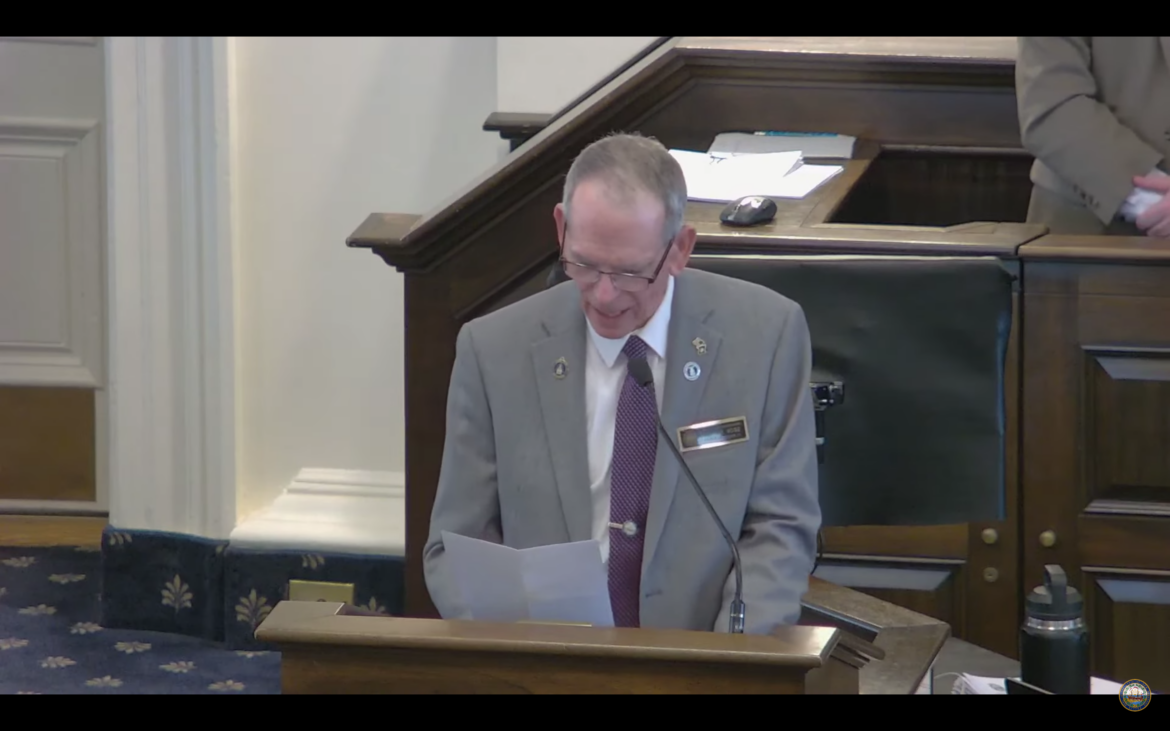By GARRY RAYNO, InDepthNH.org
CONCORD — Utilities and fossil fuels did well Thursday in the House while renewable energy and preventing climate change did not.
The House voted closely on five bills aimed at encouraging renewable energy, greater energy efficiency, and reducing carbon emissions to bring the state in line with its New England neighbors.
House Bill 208 would have New Hampshire join the rest of New England and establish greenhouse gas emission reduction goals and establish a climate action plan.
“Setting and pursuing ambitious GHG reduction goals is both the right thing to do from a climate and environmental perspective,” said Rep. Jacqueline Chretien, D-Manchester, in support of the bill, “and fiscally prudent for the future of the state.”
But others said the goals are too high and the state already has a reduction and climate plan from 2009 that has been ignored.
“This is a fundamentally dangerous proposition for the state of New Hampshire,” said Rep. Michael Vose, R-Epping. “It could actually fundamentally change the way we live.”
He said the government could dictate the car you drive, how you heat your home, where you work or whether you go on vacation.
“This would be a massive expansion of government influence over our lives,” Vose said.
The bill was killed on a 192-181 vote.
House Bill 523 would increase the cap on net metering for residential and business producers from 1 megawatt of renewable energy to 5 megawatts.
Supporters call it a moderate approach that will help businesses and homeowners and move to diversify the grid with home-grown energy.
But opponents say net metering has escalated the cost shift to other customers and amounts to what Vose said was corporate welfare at the expense of those least able to pay.
The bill was killed on a 189-182 vote.
House Bill 263, which would require the Department of Energy to inform small generators eligible for Renewable Energy Certificates (RECs) that utilities are sweeping or taking their unused certificates to lower their costs;
Supporters of the bill said the current system allowed under the Regional Greenhouse Gas Initiative legislation allows the utilities to sweep up the unused RECs to offset the costs of renewable energy they are required to purchase.
They said the practice may well be unconstitutional because it is a corporate taking of privately held value.
But opponents said the practice saves customers about $3 million a year and would require all solar panel users to be certified if they want to collect the RECs they hold.
The bill was killed on a 187-180 vote.
House Bill 605 would have solar generation be included in the renewable portfolio standards utilities are required to meet, which is true of every other state in New England.
Opponents claim it will increase the cost of electricity by $11 million a year.
But opponents said it would encourage the development of solar energy in the state.
The bill was killed on a 188-181 vote.
House Bill 524, which would increase the amount of money the state receives from the quarterly Regional Greenhouse Gas Initiative auctions for energy efficiency and conservation programs.
The other RGGI states use most of the money to invest in renewable energy and energy efficiency projects, but New Hampshire uses about 93 percent of the money for rebates to consumers which amounts to $2 or $3 a month for most residential customers.
The bill would increase the percent of funds going to renewable energy and efficiency projects to about 21 percent.
The last auction garnered the state $43 million
The bill was killed on a 186-181 vote.
Garry Rayno may be reached at garry.rayno@yahoo.com.






